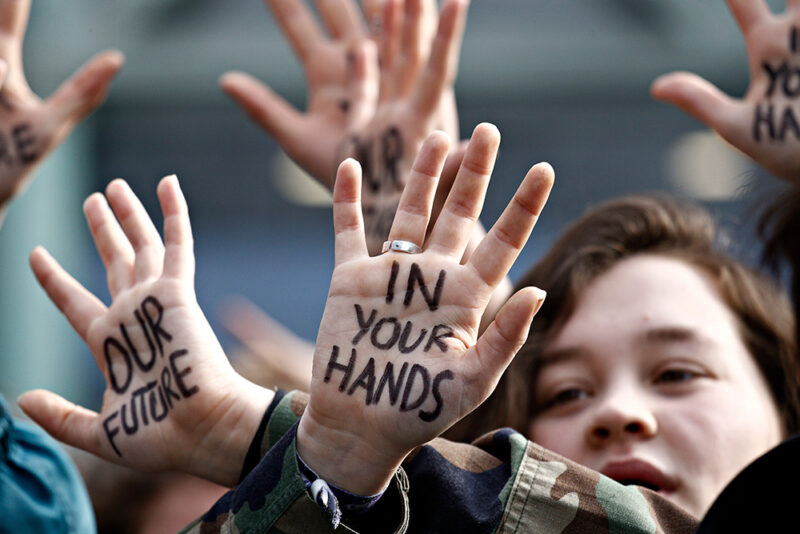On 12 December 2015, at the end of the 21st session of the Conference of the Parties to the United Nations Framework Convention on Climate Change (COP-21) that was held in Paris, 197 Parties adopted the «Paris Agreement» (PA).

High school and university students protest for a better climate policies. (Photo: Alexandros Michailidis/Shutterstock)
Entered into force on 4 November 2016, the agreement is now signed by 170 parties. Its main goal is to keep the rise of the average temperature between 1.5/2°C by the year 2100.
The task of the International Community is now to monitor the implementation of the agreement and to evaluate the measures taken by the Parties in the light of their sufficiency to reach the Paris goals. A first step of the agreement is the elaboration of mid- and long-term low greenhouse gas emission development strategies by the Parties, in accordance with different national circumstances (art 4 §19 PA).
Technological imagination and development are indispensable to reach the goals and yet they will not be sufficient if they are not accompanied by a change of mindset and a sense of (political) urgency. Changing old patterns of behaviour is a tedious process that might need a generation’s life span. The participants to COP-24 in Katowice will have to save from pledges for commitments to proposals and confirmations for concrete actions.
At the occasion of the 3rd Anniversary of «Laudato Si», Pope Francis encouraged the participants to stand up for the change that is needed and – as a start and good example – to begin with themselves: “be the change you want see to happen.”
The Pope expressed his “hope that concern for the state of our common home will translate into systematic and concerted efforts aimed at an integral ecology”. For “the effects of the present imbalance can only be reduced by our decisive action, here and now”.
“There can be no sincere and enduring resolution to the challenge of the ecological crisis and climate change unless the response is concerted and collective, unless the responsibility is shared and accountable, and unless we give priority to solidarity and service”, the Pope added.
Together with the regional associations of Bishops’ Conferences and with other Catholic organisations committed to the challenges of climate change, COMECE monitors the further steps towards COP-24 and reflect on the challenges of climate change and proposals how to deal with it.

